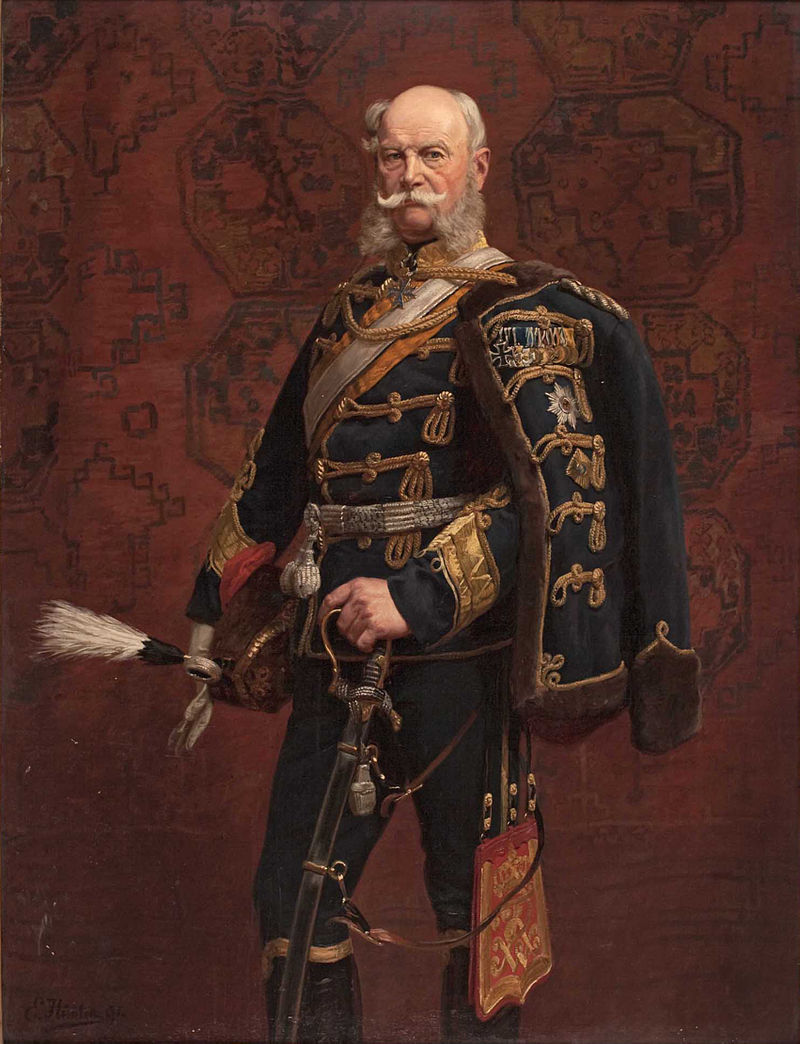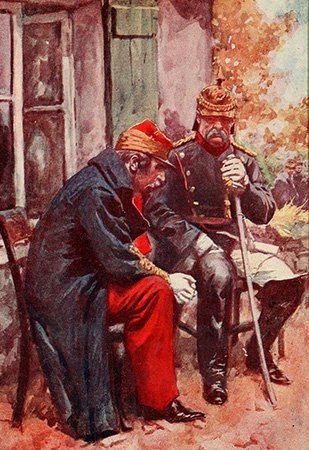
Just 153 years ago, "Germany" was not a country, only a geographic region. The Romans used the term "Germania" to refer to anything west of the Rhine and north of the Danube. Much of the area was united under Charlemagne in the ninth century, but since that time it had been a collection of independent states united by various dialects of the German language and loosely connected politically under the Holy Roman Empire. Many of these states - Saxony, Bavaria, Brandenburg, Prussia, Austria - had played important roles in European history, and not always on the same side. By the end of the Seven Years' War in 1763, Prussia and Austria had emerged as the two most important ones.

The Holy Roman Empire was destroyed after Napoléon's victory at Austerlitz, and in 1815 the Congress of Vienna had organized the German states into the "German Confederation." As nationalist sentiment grew throughout the nineteenth century, there was a popular push for all the German-speaking lands to be united into a single country.
There were three main problems with this. First, not everyone living in Germany was German (for example, Bohemia was Czech and East Prussia was Polish) and not all Germans lived in Germany (for example, German-speaking Alsace and Moselle were in France.) Second, Prussia was Protestant and Austria was Catholic, and neither wanted to risk being dominated by the other. Finally, Austria was the seat of a huge multi-ethnic Empire that included Hungary, Galicia, Croatia, Bosnia, and Transylvania. Austria was not about to give up the entire Austrian Empire just to become part of Germany, but how could there be a Germany without the largest and most powerful German state?

Well, it turned out Austria was no longer the most powerful German state, which Prussia proved in 1866 by winning the Austro-Prussian War in just four weeks. Now unquestionably dominant, Prussia went ahead without Austria and began uniting the various German states into North German Confederation.
Seeing that they would not be part of a united Germany, Austrian Emperor Franz Joseph made Hungary equal to Austria, creating the Austro-Hungarian Empire.
The Prussian chancellor, Otto von Bismarck, realized at this point (well before this point, actually) that Prussia was the only state strong enough to defend the German states from an aggressor. So he looked around for an aggressor, saw French Emperor Napoléon III, and poked him with a stick until France declared war in 1871. Napoléon expected the smaller German states would join him, but they all united in defense of Prussia. The Franco-Prussian War lasted just three months, in which time the Prussian army annihilated the French army, captured Napoléon, and laid siege to Paris. While Napoléon's opponents in France proclaimed the Third Republic, the German commanders got together in the Palace of Versailles and proclaimed Prussia's King Wilhelm the "German Emperor" (in German, "Kaiser.") All remaining German states, except Austria, joined the new German Empire by the end of the year.
The balance of power in Europe was now completely askew, as the new German Empire was the strongest country on the continent by far.